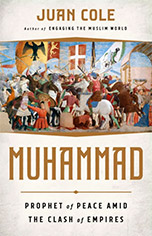Ann Arbor (Informed Comment) – Muhammad Shahid at The National (Dubai) reports that there were two attacks on mosques in northern Pakistan on Friday. The bigger explosion targeted worshipers in Mastung, Baluchistan, near the provincial capital of Quetta. This bombing appears to have been aimed at Muslims who were staging a public procession to commemorate the birthday of the Prophet Muhammad. Dozens of people were killed and nearly 100 injured, according to news reports.
The other bombing hit a mosque in Hangu in Khyber Pukhtunkhwa Province. The mosque was known to be frequented by members of the local police. The suicide bombers had tried to hit the police station first and been repulsed, so they turned to a soft target. There have been 300 attacks in this province this year.
The insurgent movement in the tribal areas of northern Pakistan, the Tehrik-i Taliban Pakistan (TTP), denied involvement. The TTP is closely allied with the Taliban who now again rule Afghanistan, and there are frictions between the Taliban and the current Pakistani government.
That the attack in Mastung targeted worshipers commemorating the birthday of the Prophet suggests that the perpetrators were members of ISIL, the so-called “Islamic State” group. When ISIL was ruling northern Iraq and eastern Syria, they banned celebrating Muhammad’s birthday as a sinful “innovation.” Their views on the matter are in accord with the fundamentalist Wahhabi branch of Islam in Saudi Arabia, where jurists such as Abdel Aziz Bin Baz (d. 1999) also forbade honoring the Prophet’s birthday. Small ISIL cells have carried out terrorist attacks on the Taliban in Afghanistan, and have occasionally hit targets in Pakistan itself. In Baluchistan, the so-called Islamic State- Pakistan Province is active, whereas in Khyber Pushtunkhwa the rival Islamic State – Khurasan carries out attacks. The latter was likely the perpetrator at Hangu.
Pakistan’s own security has declined because of infighting among the country’s political elite since Prime Minister Imran Khan was unseated in a vote of no confidence on April 10, 2022, in which 20 former supporters in the parliament defected. Khan has castigated the parliamentary maneuver as an illegitimate plot, and is now in jail on corruption charges that his followers say are trumped up.
I’d say 98% of the Muslims in the world approve of commemorating the birthday of the Prophet Muhammad, which is usually given as the twelfth day of the third month of the Islamic calendar, Rabi’ al-Awwal in 570 CE, nearly six centuries after the birth of Jesus of Nazareth.
I wrote a book about the Prophet Muhammad, in which I discuss the likely circumstances of his birth, but more importantly his teachings on peace and reconciliation.
Purchase

Muhammad: Prophet of Peace amid the Clash of Empires
Available at Schuler Books in Ann Arbor
And Hachette
And Barnes and Noble
And Amazon
It is a great shame that some do things in his name at which he clearly would horrified.
Admittedly, historians do not think large public celebrations of this day began until about the 1100s CE, some 500 years after the Prophet. Since that time, poetry and hymns have been composed for the occasion, and people have developed customs like giving children toy horses or staging parades in the streets and putting up illuminated chandeliers and lanterns over city streets. That is why some scholars consider it an innovation. But most of those see it as a good innovation. The fundamentalist Wahhabi and Salafi tendencies, in contrast, tend to see all later innovations not present at the beginnings of Islam as illegitimate.
In Pakistan, most people celebrate the entire Muslim month of Rabi` al-Awwal as the birth month of the Prophet. Marching bands, rides on caparisoned camels, and other activities of public “fun” are popular.
It is widely celebrated among American Muslims.
Pakistan Tourism: “12 Rabi ul Awal Celebration in Multan Pakistan 2022 | Eid Milad un Nabi | Hassan Sargana”

The major Sunni religious authority, the al-Azhar seminary in Cairo, Egypt, has repeatedly upheld the legitimacy of such celebrations. The considered legal ruling or fatwa says, “It is not permissible according to Islamic law to challenge the legitimacy of celebrating the anniversary of the Prophet’s birthday due to the forbidden things that may occur during it. Rather, we denounce the evils that may surround it, and we warn those who commit it – with wisdom and leniency – that these evils contradict the basic purpose for which these honorable occasions were held.”
Sufis, Muslim mystics, have sometimes engaged in ecstatic rituals on this anniversary of which the more sober clerics disapprove. You could compare this difference to one between, say, mainstream Presbyterian clerics and Pentecostalists.
Still, there is a broad consensus in both Sunni and Shiite Islam that commemorating the birth of the Prophet is a good thing, a moment of joy and celebration.
The ISIL terrorist group, which has wrought a vast swathe of destruction through Muslim societies and has also committed terrorism in Europe and the US, has a policy of acting harshly, “like wild beasts” (tawahhush). By attempting to outlaw perfectly innocent and uplifting religious practices like the birth of the Prophet, they set themselves up as superior to other Muslims and can use such prohibitions as a means of asserting power over others. Hence the bombing of the procession outside a mosque in Mastung. The good news is that the Muslims themselves have waged a concerted and brave campaign to root out this wicked heresy that has created so many orphans.



 © 2025 All Rights Reserved
© 2025 All Rights Reserved